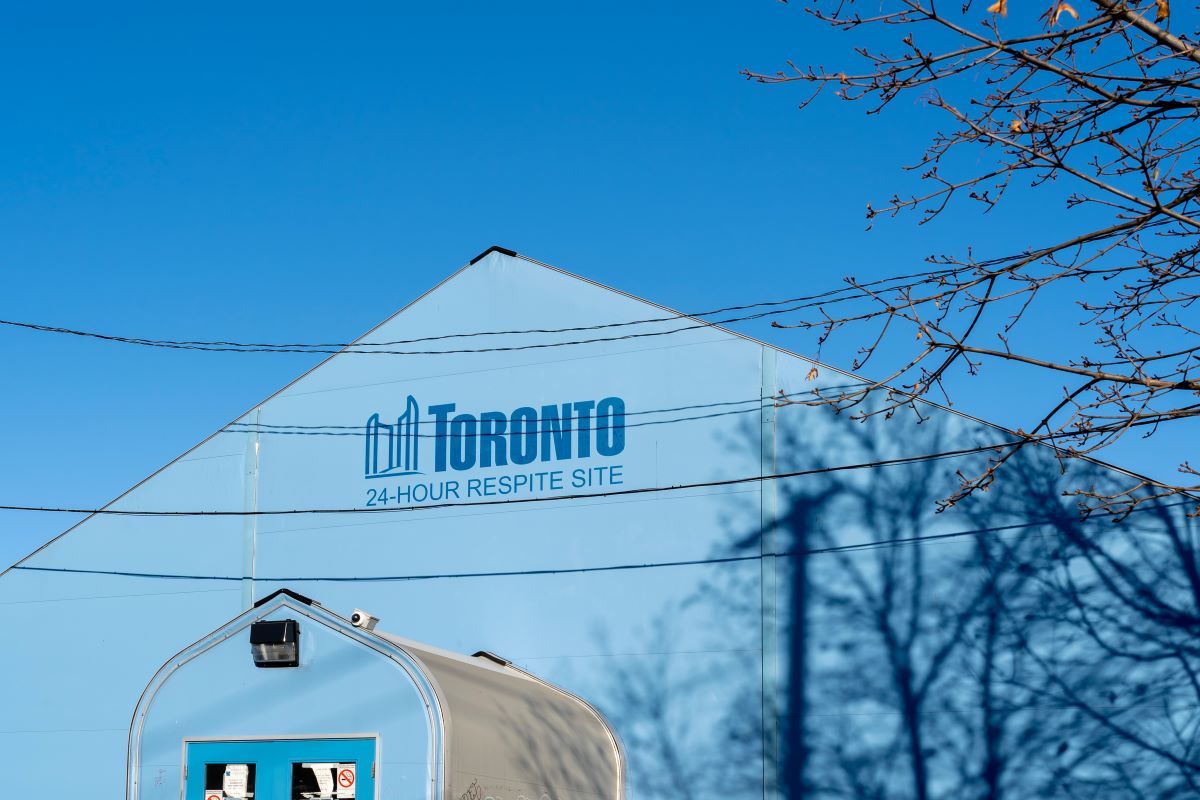“My pre-pandemic shelter experiences always put me in [the same mindset] of the institutional settings that I saw while incarcerated as a younger man … From theft to fights, dorm settings with large numbers of traumatized people are going to manifest in similar ways.”
Shelter resident Gru lamenting on the similarities between shelters and jail (via CTV News).
Few can imagine the horrors of being homeless in Toronto – the biting cold, the isolation, the anxiety that always coincides with constantly living in survival mode.
The housed community often envisions the state of homelessness as a street corner, an encampment, or a makeshift space positioned beside an underpass. In truth, this kind of homelessness, known as street homelessness or unsheltered homelessness, is one of many variations of the unsettling trend. Homelessness can also manifest in other places, such as hotels, motels, a neighbor’s sofa, and more. One of the most common places homeless people dwell in is a shelter, which should never be confused with a real home.
Like many other Canada-based cities, Toronto has responded to the ever-growing homeless crisis by expanding its shelter system, a move as ineffective as it is expensive. We already know that the shelter system isn’t worth it compared to housing from a financial standpoint. But there’s a bigger question here as new shelter data emerges. Is expanding the shelter system even safe for the people meant to dwell inside of it?
What Is Shelter in the Social Services Sector?
Contrary to popular opinion, shelter is not the same thing as housing. It’s light-years away from the concept. Shelters were initially erected as a temporary response to a growing emergency: Canadian homelessness to be precise. Billions of dollars have been funneled into the homeless shelter system, which is one of many reasons this strategy is being pushed into permanency at the expense of the very people it was initially designed to serve.
Currently, thousands of Toronto-based homeless individuals are being warehoused in these overcrowded spaces where social distancing is a far cry in the dark. Here, basic sanitary privileges are scarce. The dangers that were once in the open outdoors are now threatening individuals within small bits of square footage. In other words, they are unavoidable. In a world of abundance, a homeless shelter is scarce, lacking even the most basic things that humans need to survive.
Leaked video footage shortened and published on The Star news site reveals a scenario wherein Toronto’s homeless individuals are sloppily shoved against walls on rickety cots mere inches apart. The heat from clearly donated Red Cross blankets appears insufficient against the poorly lit backdrop of the narrow hallway where people are standing, sleeping, and, yes, screaming.
While this particular warming center is meant to hold no more than 100 people, it’s clearly gone well overcapacity. There are four restrooms for the hundreds of temporary residents to use. Three of them are out of order.
Given the bleak atmosphere and eerie features seen on film, is it any wonder that 21% of people experiencing homelessness site an “uncomfortable environment” as their main reason for avoiding the shelter system entirely?
A gloomy atmosphere that lacks space and comfort is one thing. But what the government isn’t telling you when they present these plans prioritizing shelter over housing for the local homeless population is that shelters are also extremely violent places. Here, the risk of injury or death is the price for the rickety cot on the cold, concrete floor.
Shelter Violence in Toronto has Increased by an Astronomical 200%, a Number that Amounts to 4,416 Incidents per Year
When you look at numbers like this, it’s important to keep some key things in mind. Firstly, a 200% increase alone doesn’t necessarily mean a lot if the number of violent incidents was initially on the low end. For example, if there were three violent incidents in Toronto shelters every year, a 200% increase would only be nine incidents, which comparatively isn’t many. However, this number doesn’t reflect a particularly low starting-off point, which is crucial because it means shelters have been notoriously violent places even in the recent past.
In 2016, Toronto shelters exhibited violent incidents at a rate of 120 per month, or 1,440 per year. This 200% increase, which took place in 2021, now reflects approximately 4,416 violent incidents annually or 368 per month. This number is even more sobering when you consider the fact that approximately 4,790 of Toronto’s homeless residents are housed in its shelter system on any given day.
This means almost all of them will experience violence, and some of that violence will give way to a gruesome death. Speaking of which, the City of Toronto acknowledges a 125% increase in shelter-run death rates occurring in the first quarter of 2021, which amounts to approximately 36 deaths in four months.
Readers must remember that while this data is being very quietly presented to people who really dig for it in the form of numbers, each one of those numbers represents an actual life. These lives are being taken in real-time, our time, as you casually glance over this post.
Please, for a moment, consider the following:
If 4,416 housed Toronto residents were being viciously attacked each year in the same place and 36 of them died every four months, would we not be investigating this place? Would we judge the people who chose not to travel to this place? And more importantly, would we view that place as a safe haven these people should be grateful to have available?
Talk to Your Representatives about Shelter Violence and Short-term Solutions
At the end of the day, the criminalization of homelessness and forcing short-term emergency solutions into the forefront of the services sector has not served anyone well, except perhaps politicians.
Contact your local legislators and tell them you’d rather see your hard-earned tax dollars spent on long-term housing solutions, as opposed to warehousing humans in true-to-life death traps so abhorrent they could never be called safe.
While safe emergency shelters could have a place as a placeholder as long-term non-punitive solutions are sought, the reality is they don’t currently exist in Toronto.













